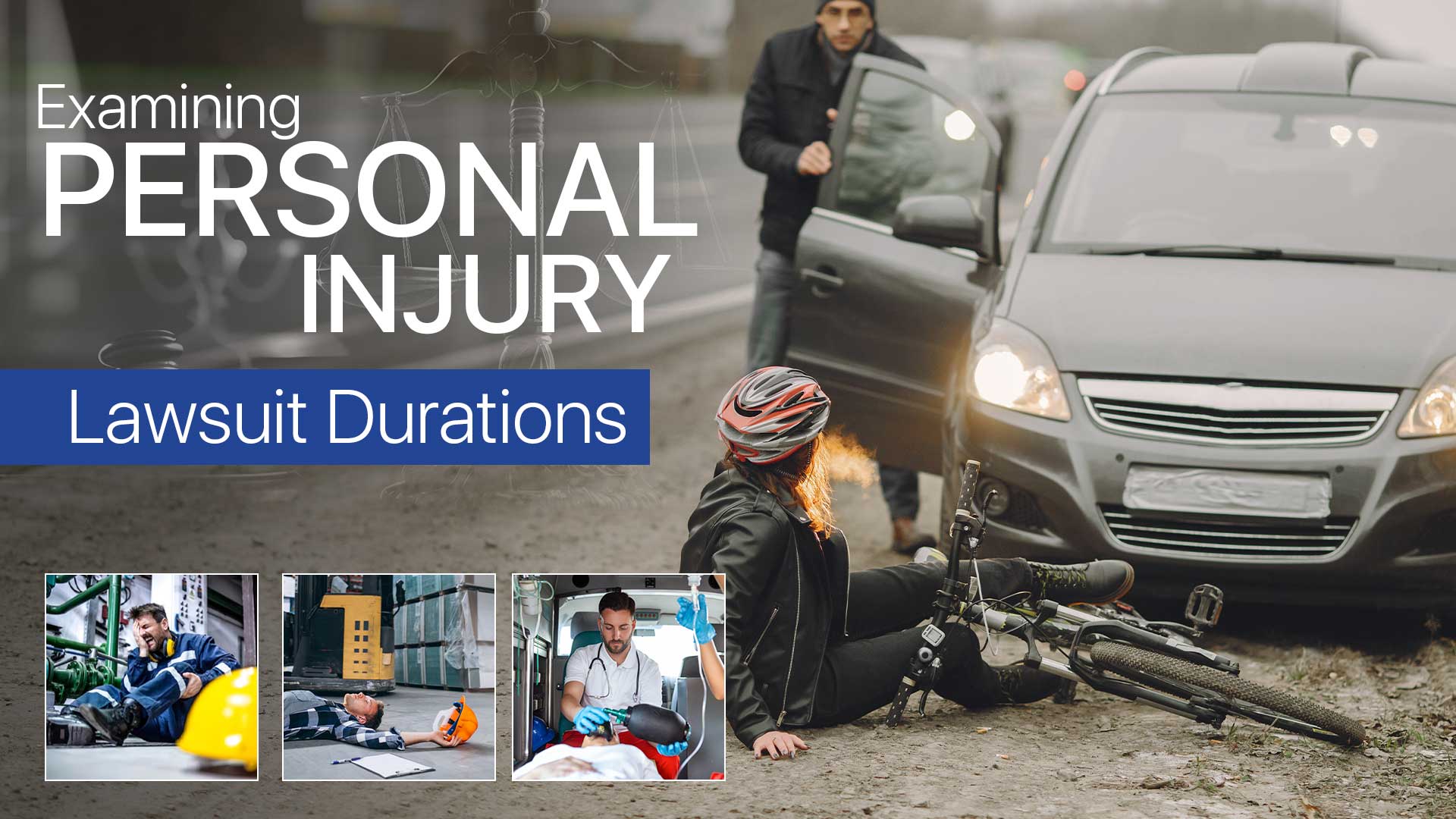There is no definitive timespan for a personal injury lawsuit. You may be surprised that some cases find a resolution before it is filed. Some take a few months, while others take years and finally see a conclusion through a jury trial.
No personal injury attorney has an exact answer for this, but they can give an estimate. I evaluate every angle of your personal injury claim to tell you how long it might take for your case to reach a favorable settlement.
These Factors Affect the Duration of a Lawsuit
The factors influencing a personal injury case vary, but rest assured that your personal injury attorney in Los Angeles will do their best to prevent delays. The circumstances that cause delay include:
● Large Claims
The bigger the compensation is worth, the longer the case may take. Insurance companies take more time on big cases than those with minor injury claims.
● Serious Injuries
Cases take considerably longer when injuries are severe. For instance, a victim requiring long-term care will have to wait until they have recovered from much of the injuries before their case is resolved.
● Multiple Parties
When a case involves more defendants, the litigation process becomes more complex because discovery and litigation are longer.
● Unnecessary Delays
Unnecessary delays occur when you choose an attorney who dilly-dallies instead of working diligently. Ensure choosing someone who won’t let your case languish.
● Intentional Delays
Insurance companies, you may know, stall personal injury settlements to their full extent. An experienced lawyer knows how to fight against such delay strategies.
● Disputed Liability
A case may go to trial if a defendant refuses to be held liable for the injuries they caused. Cases that go to trial take longer than usual to find a resolution.
Chances of Winning a Personal Injury Lawsuit
Did you know that 90-95% of all personal injury cases do not go to trial because they are settled beforehand? It is because they had an experienced personal injury defense attorney backing them up.
The chances of winning a personal injury case depend on factors like the circumstances of the incident, how strong your evidence is, the laws applicable, and the attorney’s expertise. Here are the primary factors that influence the result:
- Evidence that supports your claim. It includes photos and videos of the incident, witness testimonies, medical records, and other documentation.
- There’s a higher chance of winning the case if it is certain that the other party was responsible for the injuries. A case becomes complicated when they dispute liability or multiple parties are involved in the incident.
- Another factor is the extent of the injuries and damages, including pain and suffering, medical expenses, and lost wages. The severity of injuries and damages can determine how strong the case is.
- The availability and amount of insurance coverage of the at-fault party can affect the amount you recover. A defendant with none or limited coverage affects the outcome.
- The availability and amount of insurance coverage of the at-fault party can affect the amount you recover. A defendant with none or limited coverage affects the outcome.
- The availability and amount of insurance coverage of the at-fault party can affect the amount you recover. A defendant with none or limited coverage affects the outcome.
- Where the lawsuit is filed also influences the result because laws and legal precedents differ by jurisdiction. Some may favor plaintiffs more than others.
- The plaintiff’s recovery may be less or barred in some jurisdictions if it is found that they injured themselves or contributed to it.
What Does Personal Injury Protection Cover?
Personal Injury Protection (PIP) is an insurance coverage type common with auto insurance policies. It provides medical expense coverage and related costs associated with injuries sustained in an automobile accident. The specifics can differ for different insurance companies and state regulations.
● Medical Expenses
Reimbursement for medical expenses caused by automobile accident; PIP includes prescription medications, surgery costs, hospital bills, doctor visits, rehabilitation, and necessary medical treatments.
● Medical Equipment and Services
PIP extends to provide costs of medical equipment like wheelchairs or crutches and services like chiropractic care and physical therapy.
● Lost Wages
PIP may cover lost wages or income compensation during the recovery period if the injuries keep the insured person from working.
● Survivor’s Benefits
PIP coverage may offer survivor benefits to eligible beneficiaries or dependents if the insured person dies due to the accident.
● Funeral Expenses
It may also provide funeral and burial expenses.
Bottomline
The specific coverage requirements and limits may vary for every state. Some have mandatory PIP coverage, whereas others may offer it as an add-on to auto insurance policies. Also, the type of expenses and scope of coverage can vary based on the policy terms and applicable state regulations.
I recommend reviewing your auto insurance policy and discussing it with your insurance provider to determine the PIP coverage details and any exclusions or limitations that may apply.
Also Read: Key Reasons Why A Personal Injury Lawyer May Drop Your Case



